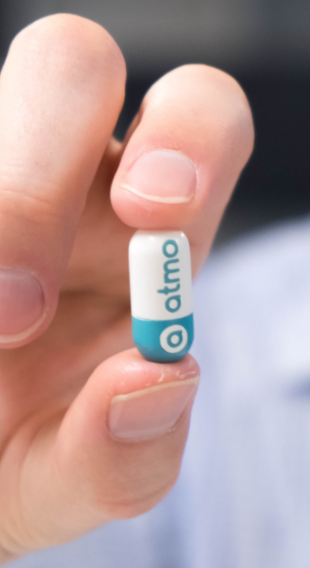Gut sensor pill coming
 An electronic capsule that measures gases in the gut could be available within just a few years.
An electronic capsule that measures gases in the gut could be available within just a few years.
A new commercial license agreement between RMIT University and Atmo Biosciences gives the Melbourne-based start-up exclusive rights to commercialise the RMIT-developed technology, and enables Phase 2 clinical trials.
The high-tech pill can detect and measure gaseous biomarkers in real time to help improve the diagnosis of gut disorders.
The electronic gas-sensing capsule offers rapid, non-invasive diagnosis of some common and debilitating conditions.
When swallowed, the capsule moves through the gastrointestinal system and transmits information via a handheld device and mobile app to the cloud for doctors to examine, enabling targeted treatment, earlier relief of symptoms and reduced healthcare costs.
As well as pursuing Phase 2 human trials, Atmo Biosciences says it will work to enhance the existing technology and expand the range of gases the capsule can sense.
Researchers will target biomarkers related to gut disorders including small intestinal bacterial overgrowth (SIBO), irritable bowel syndrome (IBS), inflammatory bowel disease (IBD) and ulcerative colitis.
Phase 1 human trials have established that the capsules were safe and reliable, with results revealing the capsule to be more than 3,000 times more accurate than breath tests in detecting gas biomarkers.
“We know breath tests suffer from high rates of false positive and false negative diagnoses and we know that gas concentrations in the gut are up to 10,000 times higher than those in the breath,” said Dr Kyle Berean, research fellow in RMIT’s School of Engineering and Atmo CTO.
“By measuring the hydrogen, carbon dioxide and oxygen produced by the gut directly at the source, our capsule offers vastly more accurate results and unprecedented signal to noise ratios, compared with breath testing.”
Under the new agreement, RMIT will receive royalties from the sale of products by Atmo Biosciences.








 Print
Print